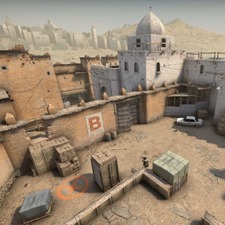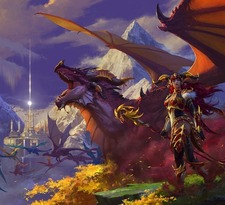Montessori bookshelves typically consist of open shelves positioned at a low height. In this manner, youngsters are able to independently retrieve books or other objects. These educational tools are purposefully designed to facilitate the development of children’s autonomy.

The demand for these bookshelves is increasing due to a rising number of parents who are adopting the ideas of Montessori education in raising their children. Montessori education is an educational methodology that prioritizes the child’s centrality in the learning process, with particular emphasis on fostering independence, freedom, and respect.
An extensively acclaimed Montessori bookshelf generates an estimated monthly revenue of $165,000 via sales on the Amazon platform. This case serves as a singular illustration of the increasing need for Montessori furniture.
What is the definition of a Montessori bookshelf?
A Montessori bookshelf is a low, open shelving unit constructed mostly from wood materials. The bookshelves have been organized in a manner that facilitates easy accessibility for youngsters. The books are arranged in a manner where the covers are oriented outward, facilitating the visibility of titles and artwork for youngsters.
The primary objective of Montessori bookshelves is to foster the cultivation of a deep affection for reading among youngsters. Additionally, they assist youngsters in acquiring the skills necessary for maintaining and managing their own possessions. The likelihood of youngsters engaging in reading is increased when they possess the capability to freely access their books.

In what ways does a Montessori bookshelf facilitate the development of independence?
Montessori bookshelves facilitate the development of independence via several means. Initially, children are granted independent access to their literary materials without the assistance of adults. This phenomenon facilitates the development of a feeling of ownership among youngsters.
Additionally, Montessori bookshelves facilitate the development of children’s sense of responsibility for their own possessions. The act of assigning youngsters the responsibility of putting away their books contributes to their development of organizational skills and a sense of responsibility.
Furthermore, the use of Montessori bookshelves facilitates the enhancement of children’s fine motor abilities. When youngsters extend their arms to get books from shelves, they use their fine motor skills. Engaging in this activity facilitates the acquisition of manual dexterity, which subsequently enhances performance in other related activities, such as writing and shoe-tying.
What factors contribute to the increasing popularity of Montessori bookshelves?
There are other factors contributing to the increasing popularity of Montessori bookshelves. There has been an increasing level of interest in Montessori education. An increasing number of parents are opting to use the Montessori technique in the upbringing of their children.
Furthermore, there is an increasing recognition of the advantages associated with autonomy. There is a growing recognition among parents about the significance of equipping their children with the skills necessary for self-care. The use of Montessori bookshelves has the potential to facilitate the development of independence in youngsters.
Furthermore, the current market offers a greater variety of Montessori furniture alternatives compared to previous years. This facilitates the process for parents to locate a Montessori bookshelf that aligns with their specific requirements and financial constraints.

What are the advantages associated with the use of a Montessori bookshelf?
The use of a Montessori bookshelf offers several advantages. Several advantages may be identified:
- Encourages children’s love of reading and independence.
- teaches youngsters how to look after their possessions.
- Improves fine motor abilities.
- It provides a feeling of order and structure.
- Allows youngsters to easily locate the books they desire.
Selecting an Appropriate Montessori Bookshelf: A Guide
In order to make an informed decision about the selection of a Montessori bookshelf, it is necessary to consider many key factors. These factors include the size and dimensions of the bookshelf, the materials used in its construction, the aesthetic appeal of the bookshelf, and its overall functionality.
1. Height
The bookshelf should be at a comfortable height for the child to avoid climbing or using a stool. For newborns, 16 inches is ideal, and for toddlers, 24–32 inches. Elementary school youngsters are usually 32–40 inches tall.
2. Depth
A bookshelf should be deep enough to house books of various sizes plus baskets and trays. The ideal depth is 11.5 inches.
3. Width
The bookshelf width should be enough to contain a variety of books while respecting room space.
4. Material
The bookshelf’s material must be durable enough to withstand kids’ abuse. Wood is strong and attractive, making it a good option.
5. style
The bookshelf should be simple to keep the child’s focus on the books.
6. Affordability
Cost: Montessori bookshelves cost a few dollars to several hundred dollars, making affordability important. Choose a bookcase that fits your budget and needs.

Conclusion
In the approaching years, Montessori bookcases may become popular. Parents will seek methods to integrate Montessori principles into their homes as they learn about its advantages. Montessori bookshelves are ideal for this.
What are the future prospects for Montessori bookshelves?
Montessori bookcases may become more popular in the coming years. As parents learn about Montessori’s benefits, they’ll look for ways to apply the ideas at home. Montessori bookshelves are great for this.
Furthermore, it is anticipated that the Montessori furniture industry will see sustained expansion. The rise in demand for Montessori furniture may be attributed to the growing needs expressed by parents, educational institutions, and commercial enterprises. The use of Montessori bookshelves is expected to play a significant role in facilitating this developmental progress.
If one is seeking a method to foster their child’s independence and cultivate a passion for reading, a Montessori bookshelf presents itself as a commendable choice. The current phenomenon has a sustained presence.















